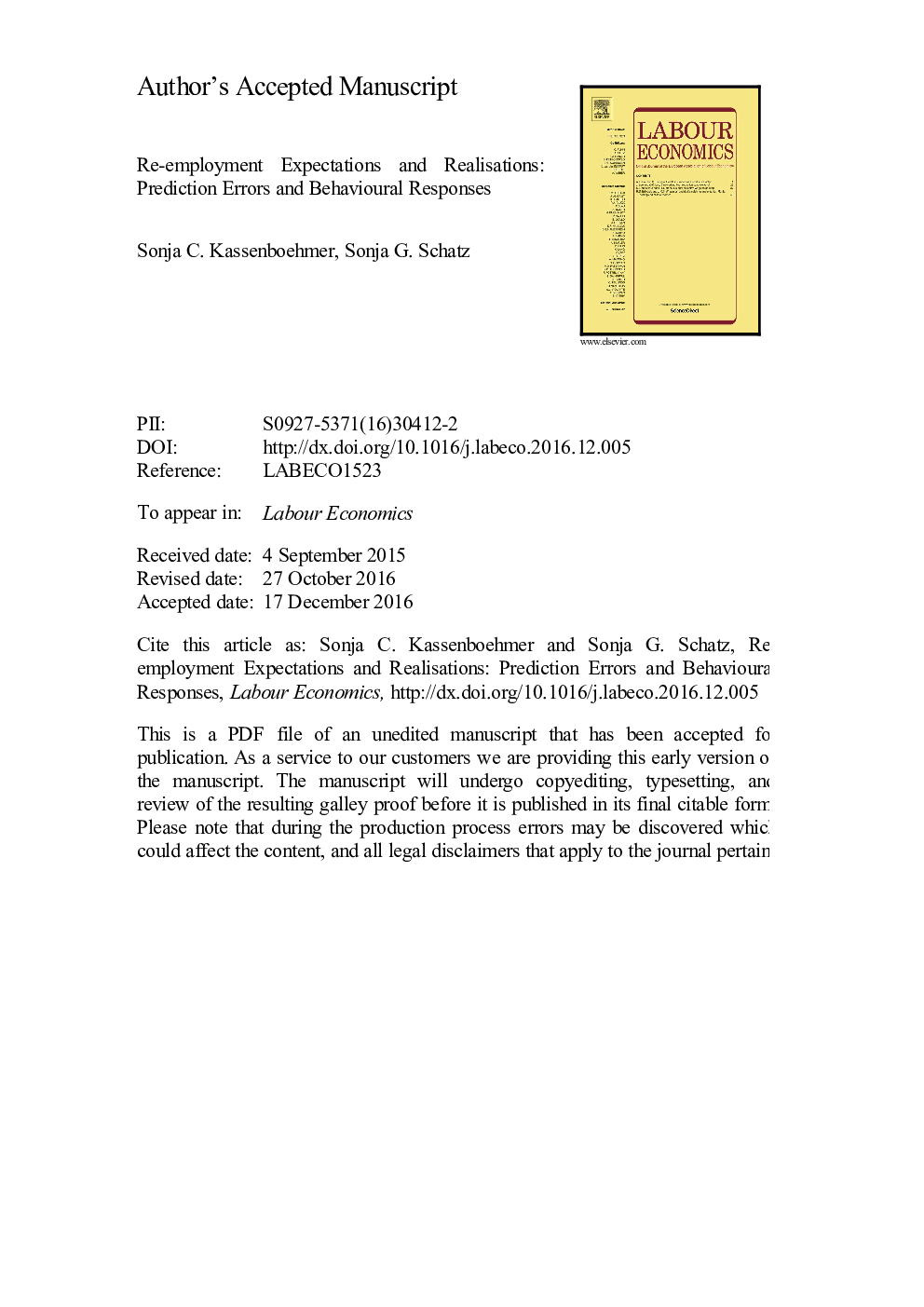| Article ID | Journal | Published Year | Pages | File Type |
|---|---|---|---|---|
| 5102031 | Labour Economics | 2017 | 26 Pages |
Abstract
Using a nationally representative panel dataset, this study investigates the extent and impact of systematic misconceptions that the currently unemployed have about their prospect of re-employment. Such biased expectations are of interest because of their capacity to drive sub-optimal labour market behaviour. Specifically, people with unemployment experience of three to five years significantly underestimate their probability of re-employment. Simply having information about the individuals' previous unemployment experience is sufficient to produce more accurate predictions than those of the individuals themselves. People who underestimate their re-employment probability are less likely to search actively for a job and more likely to exit the labour force. If re-employed, they are more likely to accept lower wages, work fewer hours, work part-time and experience lower levels of life satisfaction. By improving the accuracy of re-employment expectations, employment agency caseworkers may use this information to enhance their clients' labour market decision-making and prevent adverse job-seeking behaviours.
Related Topics
Social Sciences and Humanities
Economics, Econometrics and Finance
Economics and Econometrics
Authors
Sonja C. Kassenboehmer, Sonja G. Schatz,
